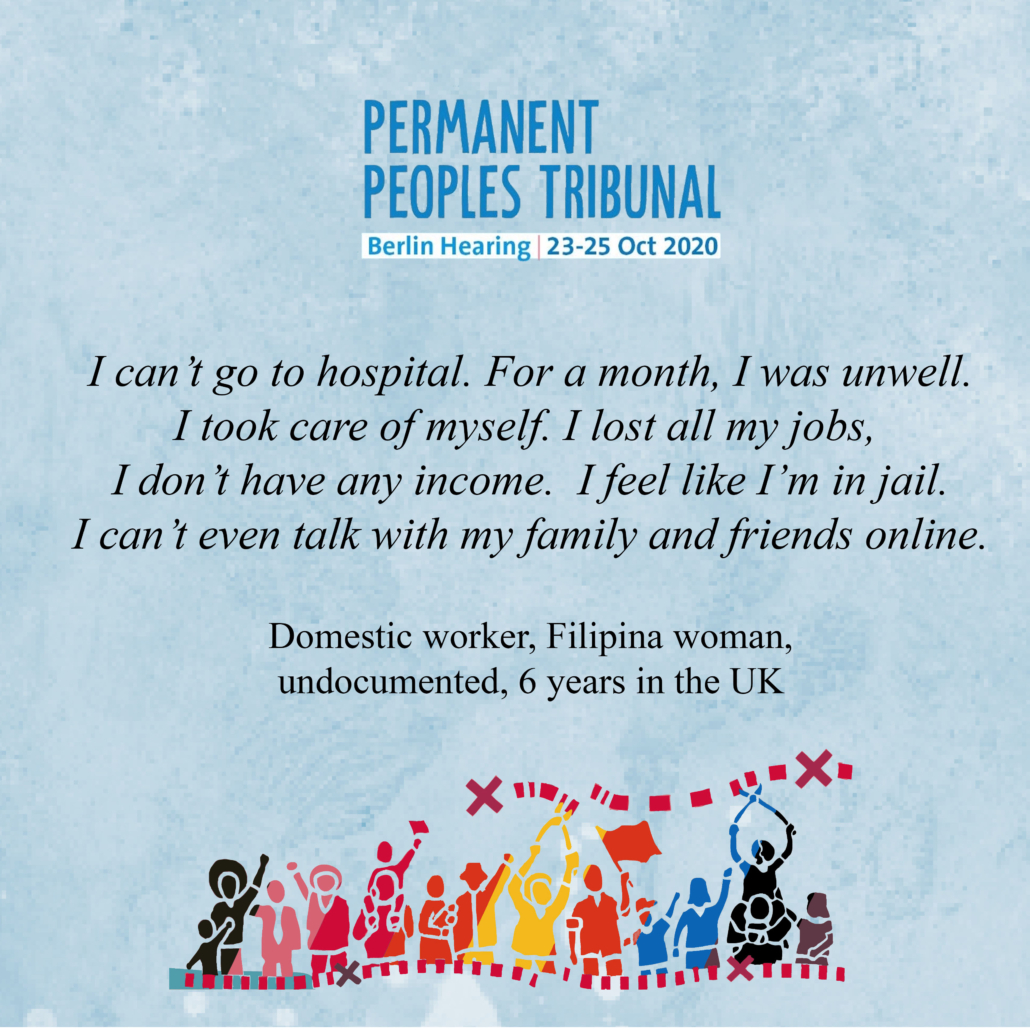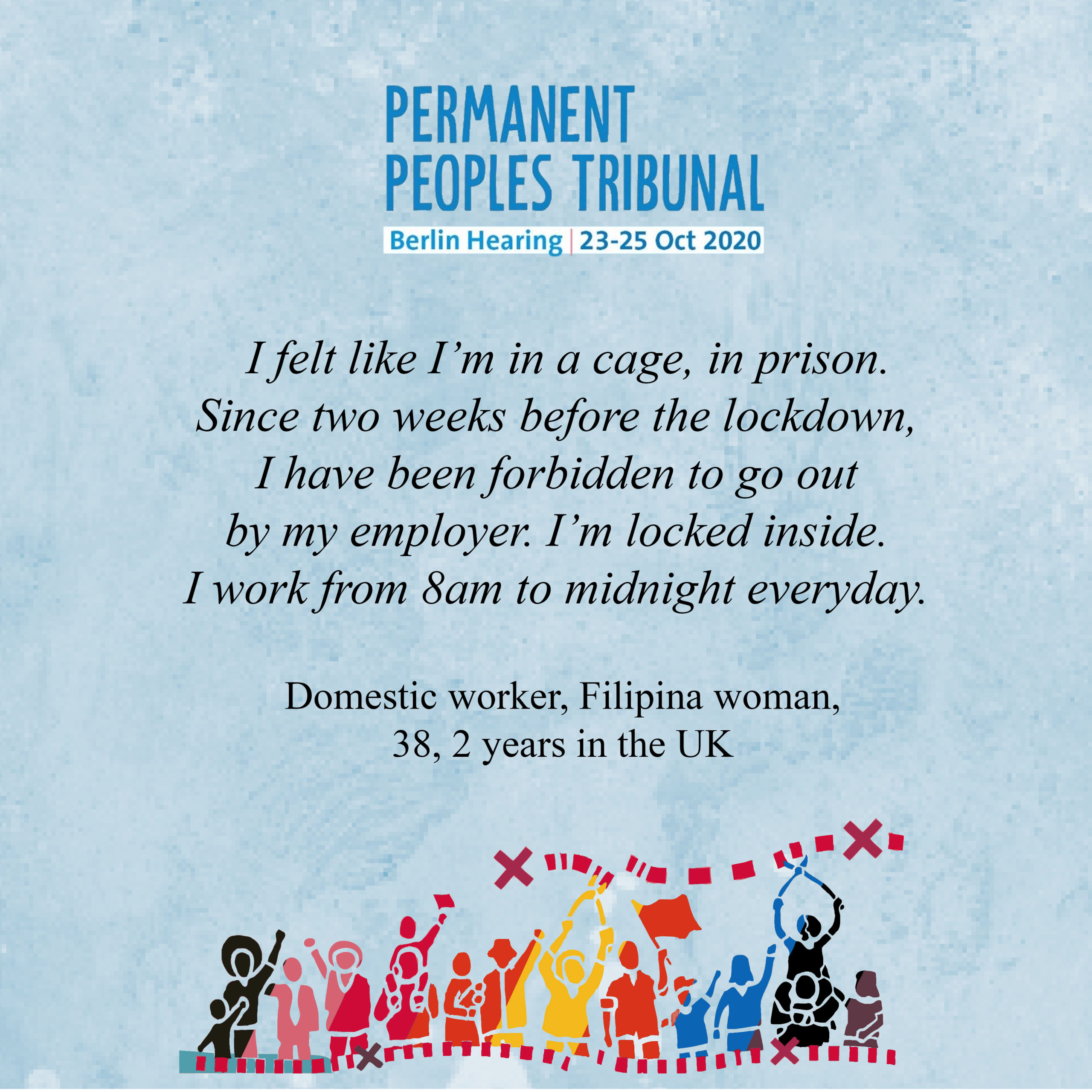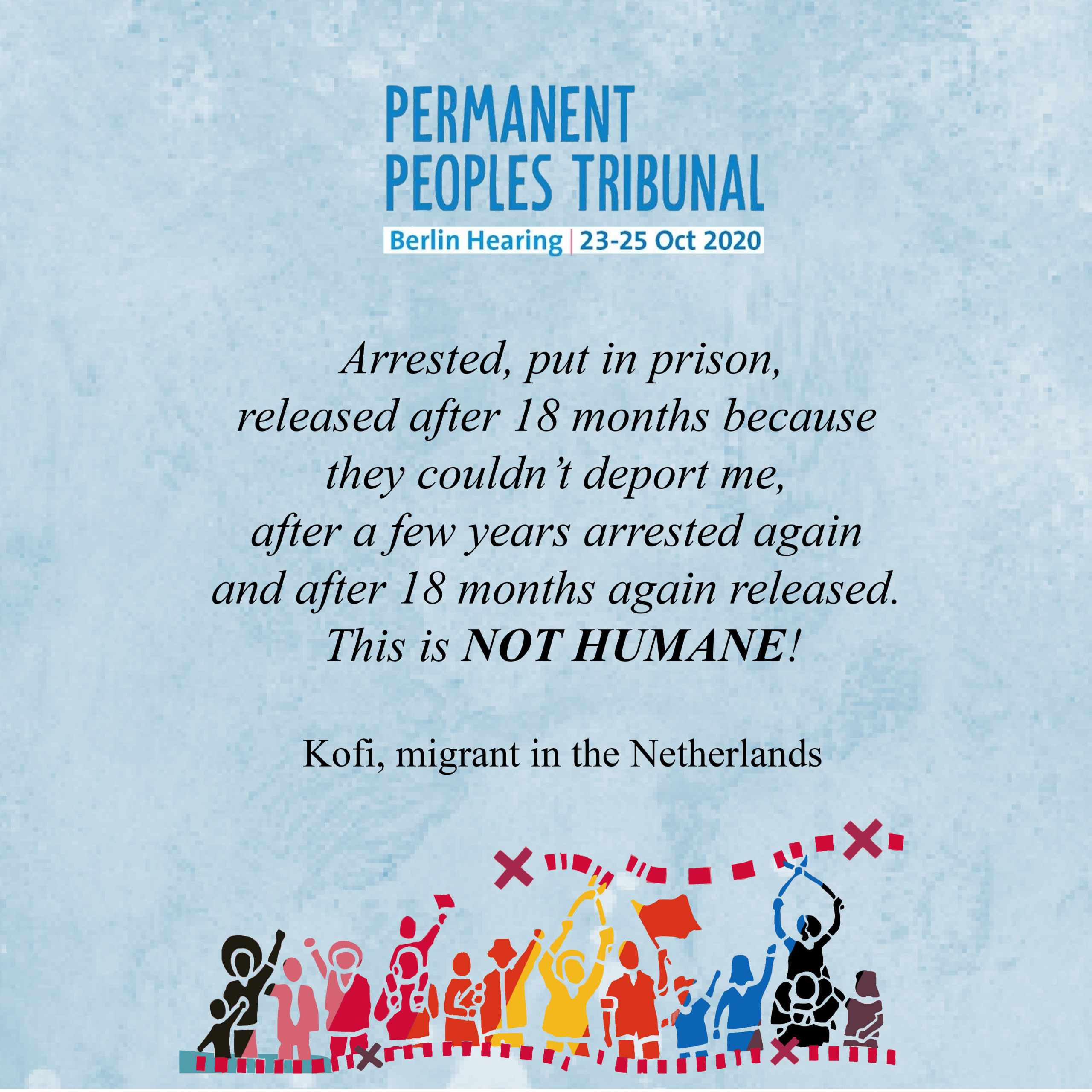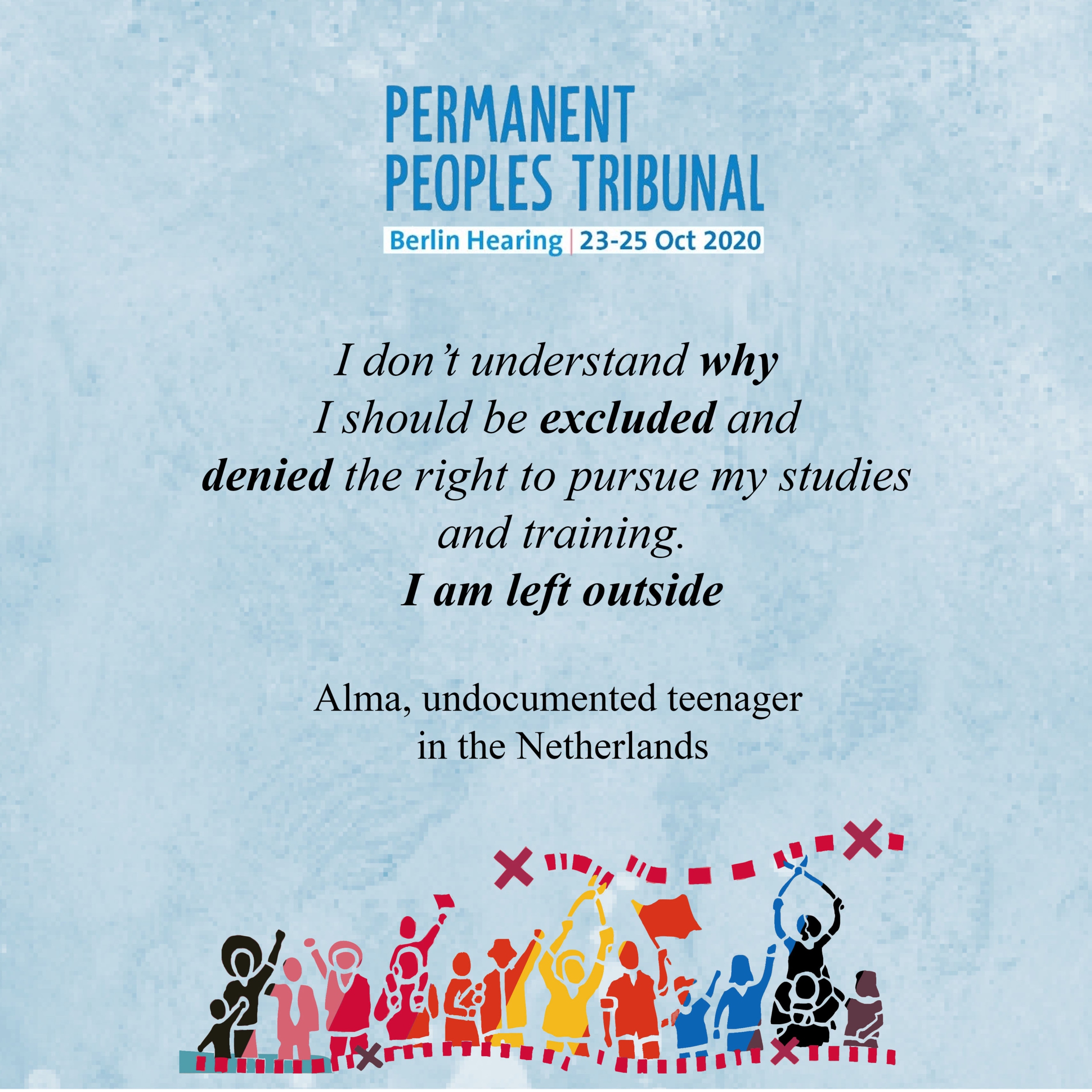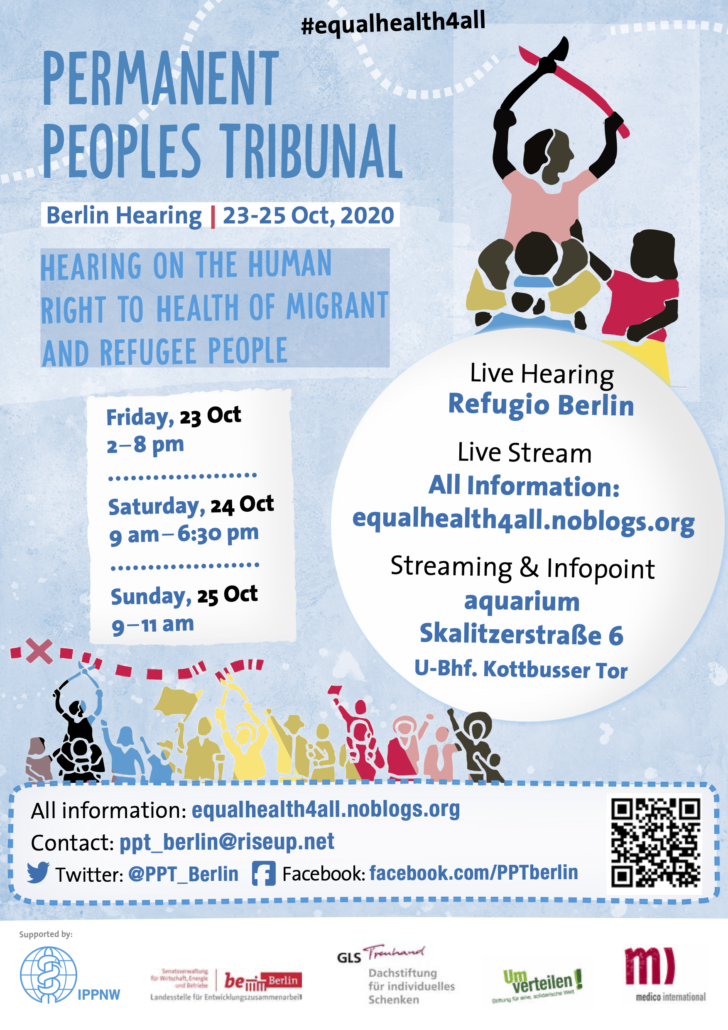Early on in the pandemic, dozens of migrant rights charities and church leaders wrote to the prime minister calling for temporary leave to remain to be granted to all migrants and asylum seekers, to prevent exploitation, destitution and homelessness and to ensure universal access to benefits, public services and medical care. The government always claimed that the point of hostile environment policies was to make undocumented migrants leave the country, by making it impossible for them to live here. Obviously this logic could not apply when borders are closed. But the punitive policies continued. The government refused to grant any form of leave, and refused to suspend hostile environment policies – meaning that exclusion from subsistence benefits, sanctions for landlords letting to undocumented migrants, for those employing migrants and asylum seekers not permitted to work, and criminalisation of the workers themselves, as well as charges for medical treatment (with the exception of testing and treatment for coronavirus), all remain in place. The government knows that the effect of these policies is to make life intolerable for those subjected to them – that is their purpose. This is a violation of rights to health, to physical and psychological integrity, to livelihood, to housing, and constitutes inhuman and degrading treatment.
The work done by undocumented migrants is nearly always manual. It can’t be performed remotely. It is almost always exploitative, frequently paying below the minimum wage. There is no statutory sick pay for those falling ill, no tax credits, no furlough or self-isolation allowance for those told to stay at home.
Being undocumented during the pandemic
A June 2020 report by RAPAR and Kanlungan Filipino Consortium, A chance to feel safe: precarious Filipino migrants amid the UK’s coronavirus outbreak, points out that the official reports all omit the undocumented migrant workers, many of whom work in social care and domestic work, in close physical contact with others, but invisible, and unable to benefit from any of the measures put into place to mitigate the effects of the pandemic. None could work from home. Respondents to their survey, mostly undocumented middle-aged Filipina women living in the UK for ten years on average, had an average wage of £6 per hour (the minimum wage in London is £8.72 and the London Living Wage £10.75). Some earned less than £2 per hour, working 16-hour days in private homes. Their undocumented status prevented them negotiating better pay or conditions.
The pandemic has had catastrophic effects. More than half of the respondents had lost all work and all income, and were relying on informal loans and charity. As three-quarters had no formal tenancy agreement, they could not benefit from the government-imposed ban on evictions. Remittances home – after rent, the main priority – had become impossible, and awareness of the hardships this caused family back home was a source of huge distress. Those who still had work could not afford to stop, even if they had Covid symptoms.
The stresses of being undocumented and the fear of discovery, and the added stresses of unemployment or overwork, no or scant income, debt, homelessness or the fear of it, and the inability to support family, exact a toll on mental as well as physical health.
A filipina woman, undocumented, (6 years in the UK) testify :
I’m a live-out domestic worker. I worked for three employers before the lockdown. One was a doctor. I cleaned his house. He was very sick and hadn’t been to work for long time … I started feeling unwell. I lost my appetite, had low fever and body ache and coughed a lot. These are symptoms of Covid-19. I was so scared. Because I’m undocumented, I have never registered GP. I can’t go to hospital. For a month, I was unwell. I took care of myself. I lost all my jobs, I don’t have any income. My family asked, ‘when are you going to send money?’ I said, ‘I can’t. I don’t have jobs now.’ I feel very stressed. I don’t know when I will have my jobs back. I started looking for new jobs. Last week I had an interview. They said they could offer me a live-in job, but the conditions are so hard. … I won’t be allowed to go out at all before September. It is too hard. I feel like I’m in jail. I didn’t accept the job offer. The stress has made my asthma even worse. I can’t get any help from doctors because I’m hidden. I’m staying with my friend. There is no internet in the house. I feel very I can’t even talk with my family and friends online.
